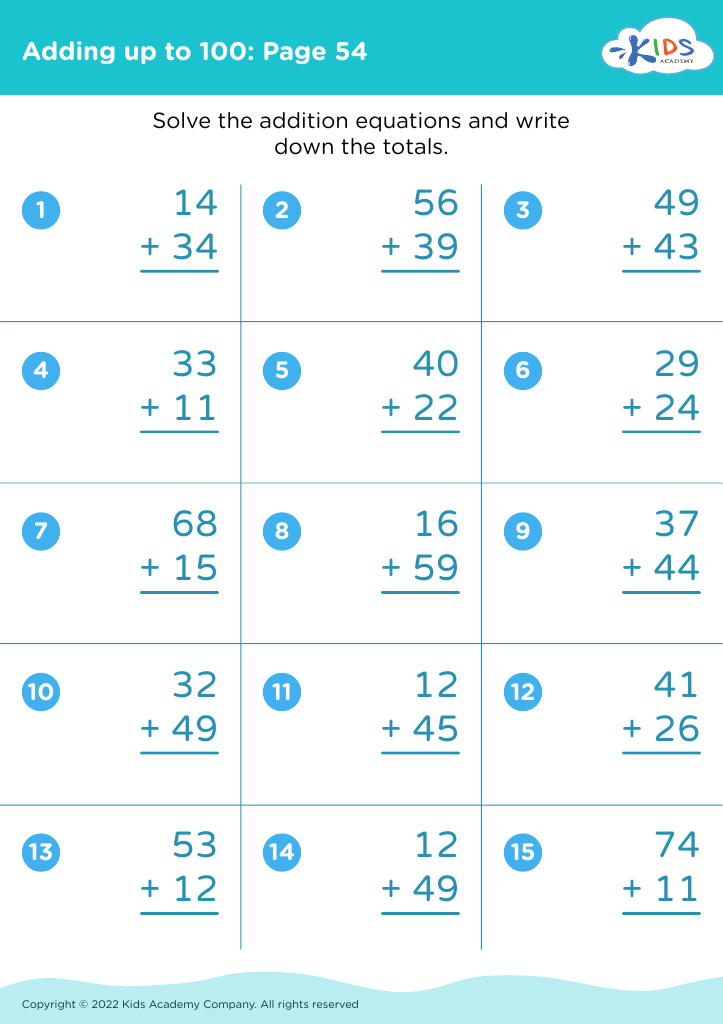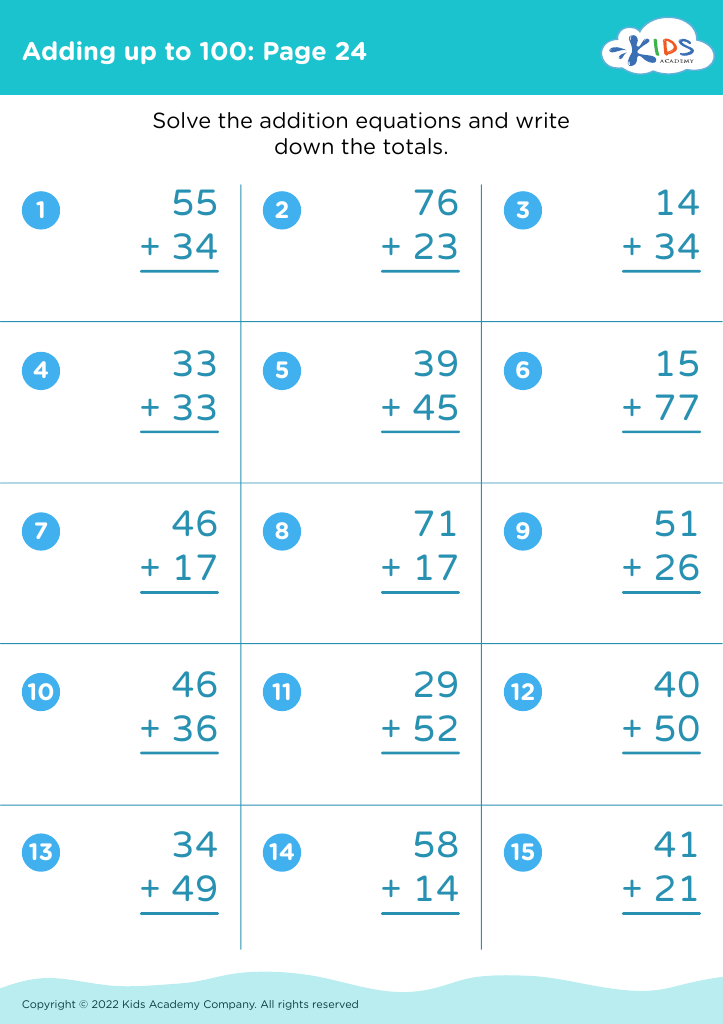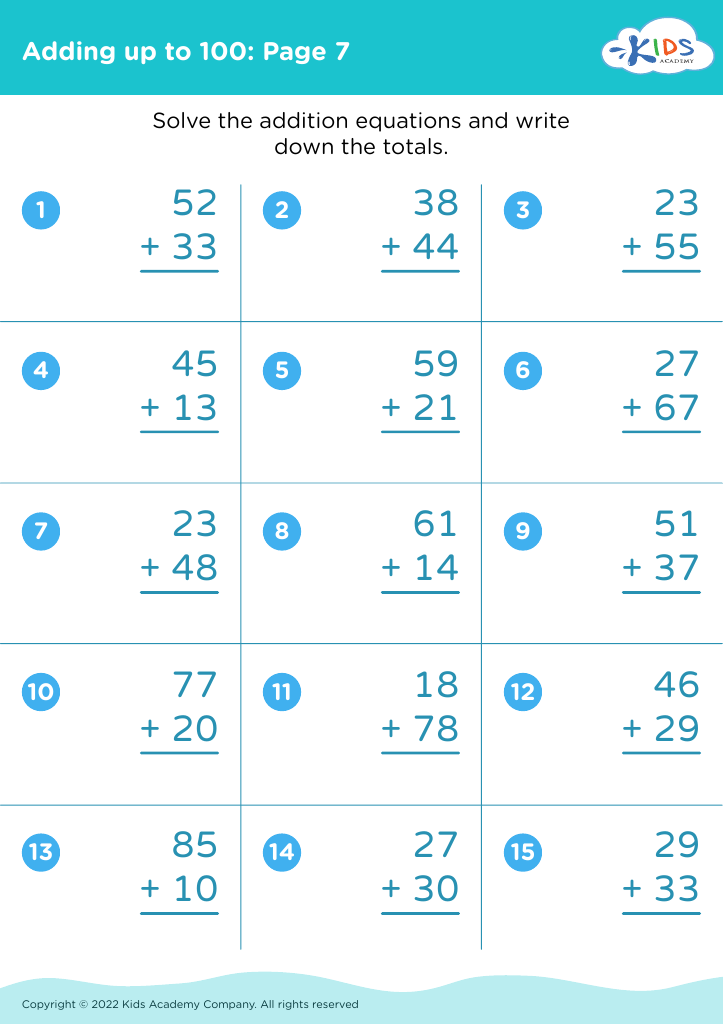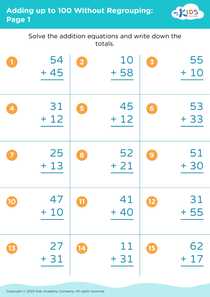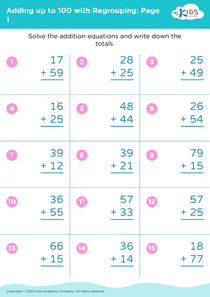Improve number recognition Adding up to 100 Misc Worksheets for Ages 4-8
3 filtered results
-
From - To
Discover a variety of engaging worksheets designed to enhance number recognition and addition skills for children aged 4-8. Our "Improve Number Recognition: Adding Up to 100 Misc Worksheets" collection provides a fun and educational way for young learners to practice adding numbers up to 100. These worksheets are crafted to keep kids captivated while bolstering their math competency. With colorful activities and exercises, children can learn at their own pace, building foundational skills that will support their future mathematical successes. Perfect for both classroom and home use, these worksheets create a joyful and productive learning environment.
Parents and teachers should care about improving number recognition for children ages 4-8 because it forms the bedrock of their future mathematical understanding and everyday life skills. Recognizing numbers up to 100 at an early age helps children to grasp more advanced mathematical concepts such as addition, subtraction, and even multiplication. When kids can readily identify numbers, it boosts their confidence and reduces the anxiety associated with mathematics. This foundational skill allows them to engage more fully in math-based activities both in and outside the classroom.
Moreover, recognizing numbers is not just a skill isolated to math lessons; it plays a crucial role in everyday experiences. For instance, kids encounter numbers on clocks, money, street signs, and calendars. Improved number recognition enables them to participate more independently and effectively in daily tasks, such as telling time and managing small amounts of money.
Additionally, these early numeracy skills pave the way for more complex mathematical thinking, critical for academic success in later years. Schools often build curriculums sequentially, meaning gaps in early number recognition can hamper the understanding of more complex subjects. Thus, fostering strong numeracy skills from a young age equips children with a critical toolkit for lifelong learning and practical problem-solving.
